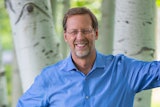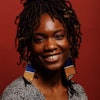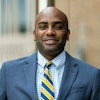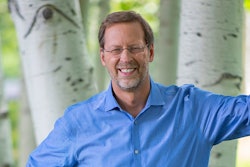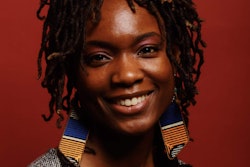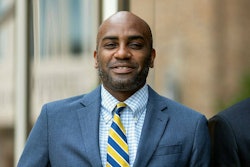First Haitian-American College President Encourages
Faculty to ‘Infuse Globalism Into Their Curriculum’
By Kenneth J. Cooper
BOSTON
Dr. Carole Berotte Joseph, the eldest daughter of a teacher and a nurse, knew growing up in Brooklyn that she wanted to teach. “On snow days and bad weather days, I would line up the kids and I would lead in playing school,” she recalls.
Her first jobs out of college were in New York City schools, teaching third-grade Spanish and then Spanish and French in a junior high. A part-time job instructing bilingual teachers at City College of New York led to a succession of higher administrative jobs, which culminated three decades later in her becoming the first Haitian-American president of a U.S. college.
For a year and a half, Berotte Joseph has led Massachusetts Bay Community College in Wellesley, a prosperous Boston suburb a long way from the colonial-style neighborhood in Port-au-Prince where she spent her first eight years before emigrating to the United States in 1957. She first claimed the title of highest-ranking Haitian-American in academia as chief academic officer and dean of academic affairs in her previous position at Dutchess Community College. She was second-in-command of the Poughkeepsie, N.Y., college.
“We do have a number of Haitian scholars who are deans of various schools, or who direct or chair departments. But she is the first college president,” says Dr. Guerda Nicolas, a Haitian-American professor of clinical psychology at Boston College.
Berotte Joseph, a specialist in sociolinguistics, has an expansive agenda. “I inherited a place that really needs rebuilding,” she says. Mass Bay has three campuses, about 5,000 degree-seeking students and another 5,000 who take noncredit courses. About 27 percent
are minorities.
She aims to boost academic rigor, partly by expanding the faculty, which has already grown 15 percent during her tenure. A more diverse faculty is another goal. She plans future hires to teach new coursework in music and foreign languages.
“I would want everyone to be bilingual,” says Berotte Joseph, who is fluent in Haitian Creole as well as French and Spanish. “I feel when you speak a language, that’s an entrée into another culture. I’m convinced languages make people richer.”
She has also directed the faculty to “infuse globalism into their curriculum” and she has hired a director of international programs to create study trips to Africa, South America and the Caribbean. She’d also like to find ways for the college’s 100 international students to provide learning experiences on campus.
Berotte Joseph led by example with events surrounding her inaugural in May. Haiti was the focus of a series of lectures, including one by novelist Edwidge Danticat. “I really wanted to celebrate Haitian culture and share that with the campus,” Berotte Joseph says.
She has assigned deans and executive staff members to read and discuss two books, The World Is Flat by Thomas L. Friedman and Why Are All the Black Kids Sitting Together in the Cafeteria? by Spelman College President Beverly Daniel Tatum. Even as a college president, Berotte Joseph is still teaching.
© Copyright 2005 by DiverseEducation.com
